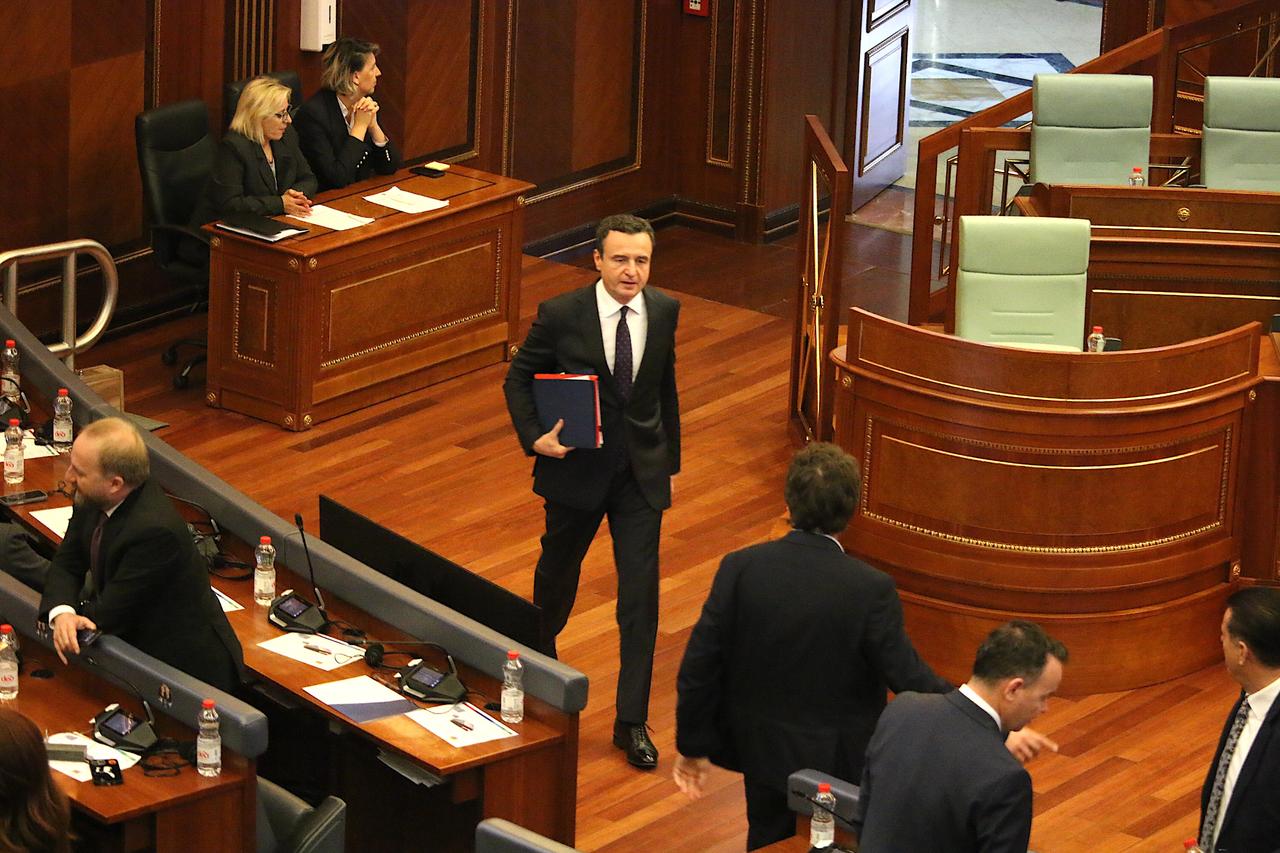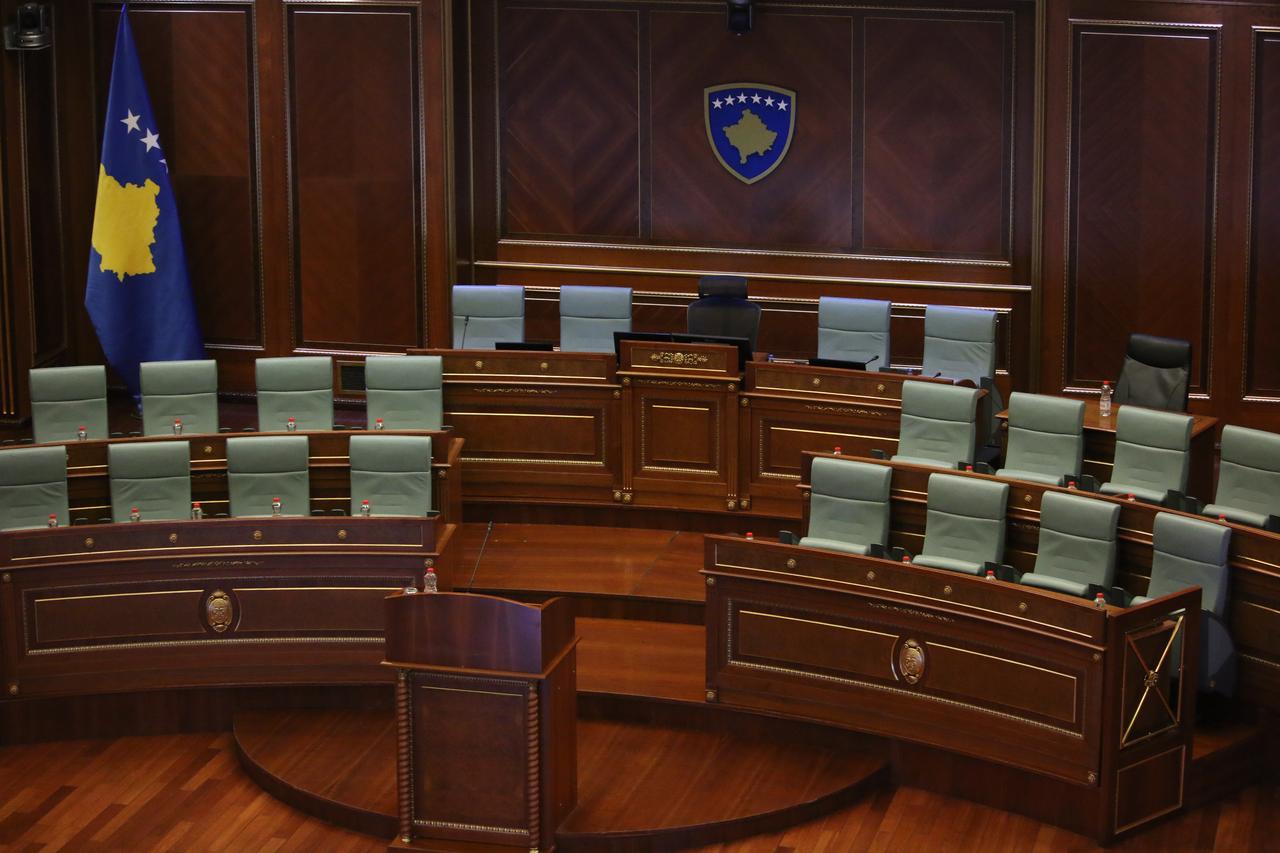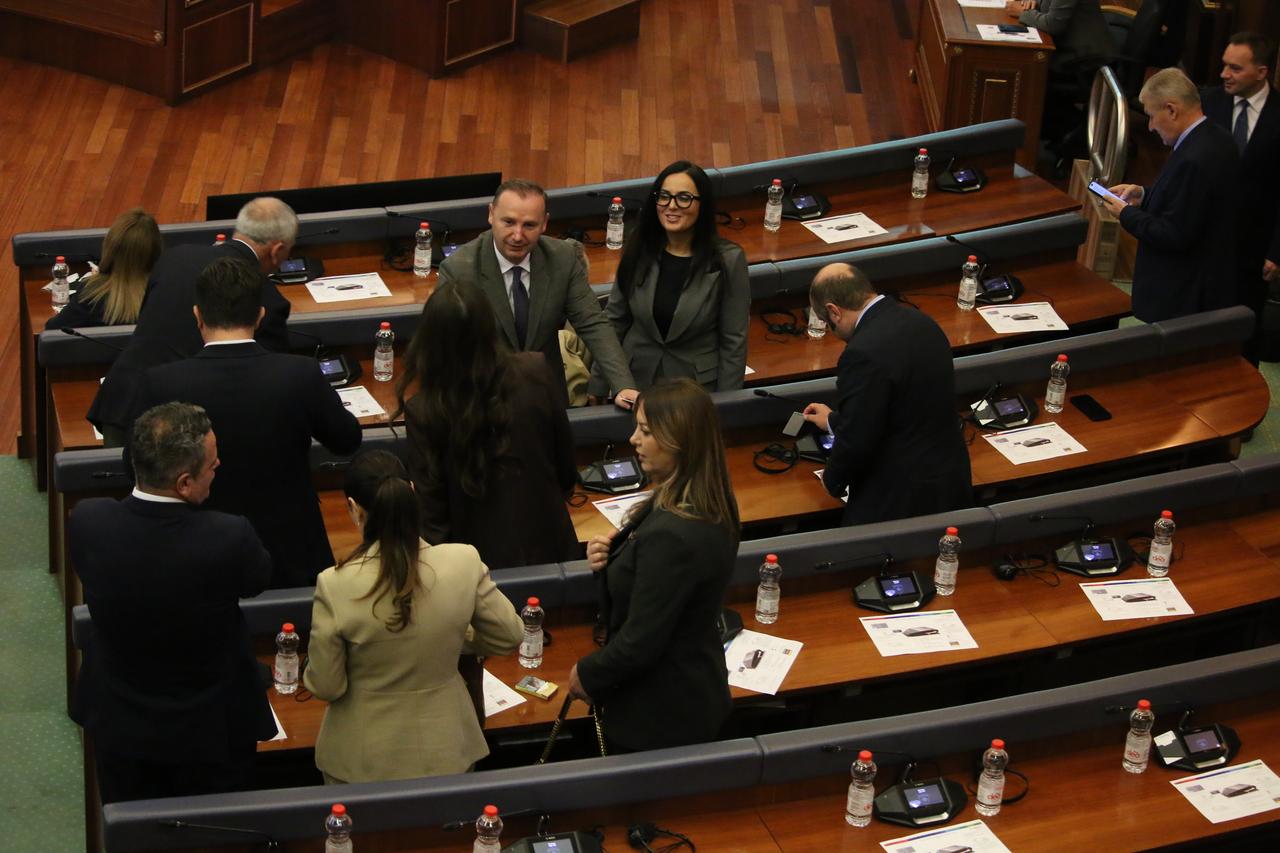
Kosovo’s caretaker prime minister, Albin Kurti, failed Sunday to secure enough parliamentary support to form a government, deepening the country’s months-long political crisis and increasing the likelihood of snap elections after February’s inconclusive parliamentary vote.
The Kosovo Assembly, chaired by Speaker Dimal Basha, convened to vote on Kurti’s proposed government. Addressing lawmakers, Kurti said none of the parliamentary parties had agreed to join a coalition.
Kurti’s Vetevendosje party secured only 56 votes , five short of the 61 needed for a majority, leaving the nation without a functioning government nearly nine months after the election.
This marks the first time since 2001 that a prime minister-designate has failed to win a confidence vote in the initial attempt, Koha News reported.
Opposition parties, including the Democratic Party of Kosovo (PDK), the Democratic League of Kosovo (LDK), and the Alliance for the Future of Kosovo (AAK), voted against Kurti’s candidacy.

Meanwhile, according to the Constitution, Osmani must nominate another candidate within 10 days, but if no viable government emerges, snap elections must be held within 40 days.
It remains unclear whether President Vjosa Osmani will ask the second- or third-placed party to try to form a government. Both have said that a new election would be the best way to resolve the stalemate.
The president must now nominate a prime ministerial candidate for a second parliamentary vote. It is uncertain whether Kurti, 50, will be reconsidered or whether an opposition figure will be proposed instead.
If no majority emerges in the second vote, Kosovo will be forced to hold another legislative election.
Following the session, statements made by representatives of other parties indicated that they would not form a majority and that the country needs to be prepared for elections.
Kurti, who remains caretaker prime minister, warned lawmakers before the vote that each passing day without a new administration represents “a day of loss for development, for the citizens, for the state.”
He said that without an approved budget, Kosovo risks heading into new elections unable to fund essential public services, including pensions, medicine supply, police, and security operations.
“A country without a budget is a country that cannot move forward,” he said.
Kurti’s proposed 20-member “Kurti 3” Cabinet included familiar figures such as Foreign Minister Glauk Konjufca and Finance Minister Hekuran Murati.
Additionally, Kosovo's acting Finance Minister Murati warned that new elections could delay the EU Growth Plan and other major projects, but said his party had “offered cooperation to all.”

Lumir Abdixhiku, leader of the LDK, directly blamed Kurti for “blocking Kosovo for eight months.”
“It seems that we are heading for extraordinary elections,” Abdixhiku said.
Speaker Basha closed the session by noting that responsibility now lies with President Osmani, who is expected to consult with party leaders to determine whether a governing majority can still be formed or whether early elections will be called.
Following the session, representatives from several parties said they would not join any coalition with Vetevendosje and called for new elections.
Opposition parties have accused Kurti of straining ties with Western allies and mismanaging tensions in Kosovo’s Serb-majority north.
Kurti, a left-wing Albanian nationalist, first came to power in 2021 when Vetevendosje won more than 50% of the vote, securing a seven-seat parliamentary majority. He continues to serve in a caretaker capacity.
According to official results from the Feb. 9 vote, Vetevendosje won 48 of the 100 contested seats in Kosovo’s 120-member Assembly. The PDK took 24 seats, the LDK 20, and the AAK/NISMA coalition 8.
Among the 20 seats reserved for minority communities, the Serb List won 9, the Turkish Democratic Party of Kosovo (KDTP) 2, and other minority parties—including the Egyptian Liberal Party, Ashkali Party for Integration, and United Gorani Party—shared the remaining seats.
Kosovo declared independence from Serbia in 2008 and has since been recognized by 108 countries, including the United States and Türkiye. Serbia, however, continues to regard Kosovo as part of its sovereign territory.